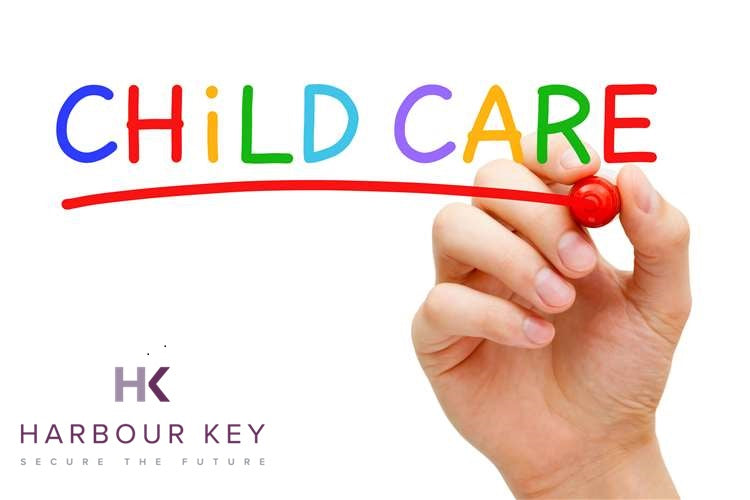
The cost of childcare can take up a large chunk of the family budget.
The government’s childcare voucher scheme, where an employer could provide an employee with a contribution to childcare support tax free by way of vouchers, closed to new applicants in October 2018. For those employees receiving childcare vouchers at October 2018, they could continue, as long as the employer continued to offer the scheme, and/or the children remain eligible.
The only way that an employer can support an employee with tax free childcare now is to offer their nursery, either at the place of work or at another location connected to the employer. Very rare!
As a result of the childcare voucher scheme being closed, support was replaced by the Government, via the Tax-Free Childcare scheme and other similar schemes. Below summarises what is available in England, however similar support is available in Wales, Scotland and Northern Ireland.
With February half term approaching, HMRC has issued a reminder to families in England to register for the tax-free childcare. Victoria Atkins, financial secretary to the Treasury said: ‘Tax-free childcare can make a big difference to household budgets and I urge families to make sure they are getting the help they are entitled to.”
Tax Free Child Care
The scheme offers savings of up to £2,000 a year on childcare costs. HMRC believe that childcare support uptake has been low with only half of eligible families claiming.
To qualify for tax-free childcare, the following conditions apply:
- The households’ adults earning the equivalent of at least the national minimum or living wage for 16 hours per week;
- Must not be claiming tax credits or universal credit in any form or other disqualifying benefits such as job seeker’s allowance.
- Eligible children must be aged 11 or under, or 16 if the child has a disability.
The benefit is not available for those earning over £100,000 a year.
The scheme covers registered nurseries, childminders, breakfast or after school clubs, holiday care and out of school activities.
For every £8 paid into an online account, families will automatically receive an additional £2 from the government. Parents can receive up to £500 every 3 months (£2,000 a year), or £1,000 (£4,000 a year) if their child is disabled.
Each eligible child requires their own tax-free childcare account. If families have more than one eligible child, they will need to register an account for each child. The 20% government top-up is then applied to deposits made for each child, not household.
Account holders must confirm their details are up to date every three months to continue receiving the government top-up.
More details can be found here.
15 Hours Free Childcare for 2 year-olds
For families in England, with 2-year-old children, 15 hours of free childcare or early education for 38 weeks can be claimed.
To claim the 15 hours, the family must be claiming one of the following:
- Income Support
- Income-based Jobseeker’s Allowance (JSA)
- Income-related Employment and Support Allowance (ESA)
- Universal Credit, and your household income is £15,400 a year or less after tax, not including benefit payments.
- Child Tax Credit, Working Tax Credit (or both), and your household income is £16,190 a year or less before tax.
- The Working Tax Credit 4-week run on (the payment you get when you stop qualifying for Working Tax Credit).
More details can be found here.
15 hours Free Childcare for 3 and 4-year-old children
Available to all families in England with 3 and 4-year-old children.
The scheme provides for 15 hours of free childcare or early education for 38 weeks, a total of 570 hours per year, that you can be use flexibly with one or more childcare providers (provided they offer the Government scheme).
Some providers will allow you to ‘stretch’ the hours over 52 weeks, using fewer hours per week.
More details can be found here.
Specified Adult Childcare Credits
Specified Adult Childcare Credits are National Insurance credits that can be used to increase or even enable entitlement to the state pension. They arise where the child’s parent (or main carer) does not need the National Insurance credits arising from their claim to child benefit, normally this is because the parent (or carer) is working and is paying National Insurance contributions (NICs). The “spare” credits can be passed to the qualifying relative (see below) who provides the childcare.
The credits can count towards the relative’s eligibility for a state pension, provided that the individual wishing to claim the credits did not have a valid election in place to pay reduced NICs. These credits could be very valuable where the relative has not yet reached the maximum number of years required for a full state pension; or they could help a relative qualify for some state pension where they had not met the minimum number of qualifying years for a state pension.
For individuals reaching state pension age on or after 6 April 2016, the minimum number of years required for a full state pension is 35. The minimum number of years required for a partial state pension is 10.
Certain relatives can claim them provided all the following three conditions must be satisfied for the year for which it is intended to transfer the NIC credits:
The relative:
- Has not already reached state retirement age.
- Looks after a child or children under the age of 12 while the child or children’s parent or main carer is working.
- Does not already have a qualifying year in their own right through their own contributions or NIC credits.
- Ordinarily resident in the UK.
- The parent (or carer) does not need the NIC credits from their child benefit claim for their own NIC record.
- Both the relative and the parent (or carer) make a joint claim at the relevant time (see below).
More details can be found on this link.



